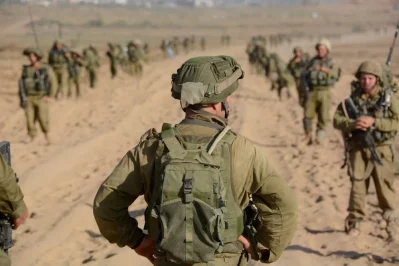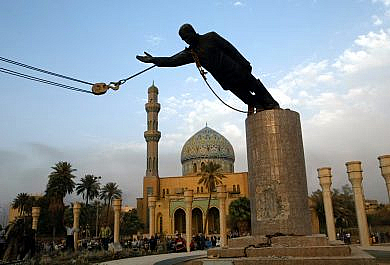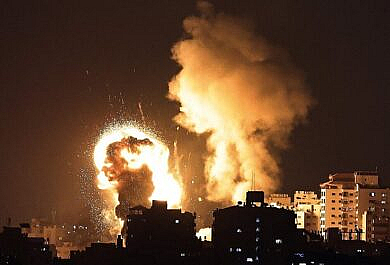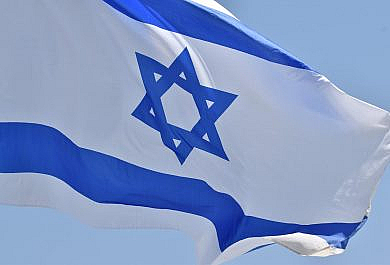Israel and Hamas have agreed to a four-day ceasefire to free approximately 50 Israeli hostages held captive since the horrific Hamas terrorist attack on Southern Israel on Oct. 7.
Summary
Israel and Hamas have agreed to a four-day ceasefire to free approximately 50 Israeli hostages held captive since the horrific Hamas terrorist attacks on Southern Israel on Oct. 7 that killed 1,200 people, mostly civilians.
- In exchange, Israel will release 3 convicted Palestinian terrorists for every hostage freed.
- The deal was brokered by the United States and Qatar, the wealthy Gulf nation that’s served as both a mediator between Israel and Hamas and one of Hamas’s chief sponsors.
- The fifty hostages will be released in stages over four days, in exchange for 150 Palestinians convicted and sentenced to prison in the Israeli court system.
- Both sides plan to release women and minors – for Hamas, this is expected to include many of the toddlers held in captivity, while Israel will release older teenagers convicted of violent offenses.
- Israel said it would be willing to extend the ceasefire if Hamas agreed to release more hostages. According to Reuters, this could mean as many as 100 hostages could be freed by the end of November.
- Approximately 240 people are being held captive by Hamas terrorists in the Gaza Strip and include men and women, the elderly and a 10-month-old infant, and attendees at the music festival that became the site of a horrific massacre and brutal mass rapes.
![]()
- The New York Times reported that although the ceasefire has been agreed to in principle, the two sides are still ironing out the details. At time of publication, “they had not announced specific plans for an exchange of at least 150 Palestinian women and children jailed by Israel for at least 50 Israeli women and children held in Gaza, including when it will start and who will be included. The Israeli military also said that it ‘continued to fight in the Gaza Strip,’ highlighting that the agreement to pause fighting for at least four days had not taken effect.”
- CNN covered the “excruciating” wait for the families of Israeli hostages before the deal goes into effect to find out the identities of the hostages set to be released. CNN noted, “While the exact names of the hostages to be released has yet to be publicized by the government, officials say some have dual nationality. The Israeli military says Hamas is holding 239 hostages in Gaza, including foreign nationals from dozens of countries, who were taken during the October 7 attack.”
- Forward’s Jay Michaelson argued the deal is “a triumph of difficult compromise.” Although “The hostage deal requires Israeli leaders to compromise on several core moral and political imperatives: Don’t negotiate with terrorists. Don’t settle for an imperfect agreement. Don’t give Hamas what it wants. And don’t allow violent criminals to go free. But painful compromise is exactly what leaders have to do sometimes.”
![]()
- “US officials have said they were hoping that Abigail Mor Idan, a 3-year-old American girl whose parents were killed Oct. 7, would be among the children included in the negotiations,” the New York Post reported. “Ten Americans are still unaccounted for, including the toddler and two women.”
- Hamas has a greater objective in the prisoner swaps – notably freeing Ibrahim Hamid, an imprisoned terrorist serving multiple life sentences, wrote Alison Leigh Cowan for Commentary. Hamid plotted several deadly suicide bombings during the Second Intifada that killed 46 Israelis, and Hamas hopes to spring him in the same manner that Yahya Sinwar, the architect of the Oct. 7 attacks, was freed in a 2011 prisoner exchange for captured Israeli soldier Gilad Shalit.
- As National Review’s Jim Geraghty pointed out, “those of us who are not at the highest levels of the Israeli government are operating with less information than those who are. The Mossad and IDF don’t have perfect intelligence on everything in the battlefield, but they know how many casualties they’ve suffered and how far into Gaza their forces have advanced, and they likely have at least a partial sense of where the remaining targets are and whether those remaining targets can escape from northern Gaza to southern Gaza. If the Israelis believed that a four-day pause in the fighting would leave them with a significant military disadvantage, they would be unlikely to agree to it.”
Author’s Take
Author’s take
© Dominic Moore, 2023






